English
Phone: (240) 740-7252

Holmes, Mrs. Katherine E
()Staff

Holmes, Mrs. Katherine E
()
Anderson, Mr. Keith G
()
Antoine, Ms. Carly E
()
Appino, Ms. Leslie A
()
Bannister, Mr. Joseph E
()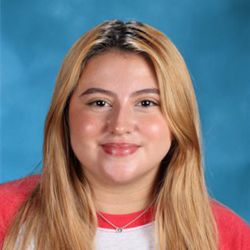
Benitez, Ms. Rosy E
()
Blake, Mrs. Nina C
()
Clay, Mr. Adam
()
Cole, Mr. Daniel R
()
Collier, Mr. Marshall L
()
Conley, Miss Erin E
()
Elie, Ms. Michelle L
()
Garcia-ruiz, Ms. Natalie M
()
Goldberg, Mr. David B
()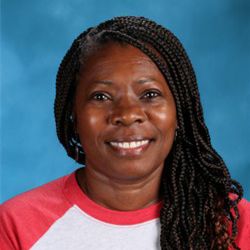
Grear, Miss Alyss N
()
Horne, Mr. Michael J
()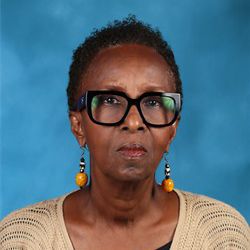
Jampolsky, Ms. Hiba M
()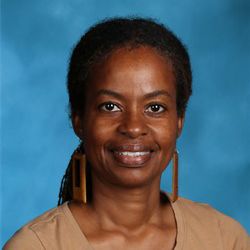
Johnson, Mrs. Neferisha K
()
Lynch, Mr. Peter M
()
Moran, Ms. Lisa C
()Olivero, Mr. Angel
()
Pundzak, Mrs. Brandi L
()
Rollins, Ms. Shelly (Catrina) C
()
Sisler, Mr. Peter F
()
Stelzner, Mr. Jeremy A
()
Tinsley, Mrs. Leigh E
()
Wannen, Mr. Kyle J
()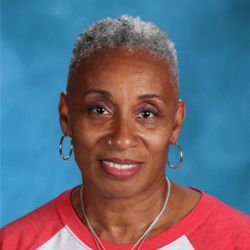
Whitney, Ms. Donna
()
Williams, Mr. Bruce C
()Wilson, Mr. Jasper L
()
The English Department is committed to providing students with quality instruction that encourages them to become better thinkers and problem-solvers. We direct our efforts towards student-centered learning and other differentiated learning strategies. We believe in Gardner's theory of multiple intelligences and attempt to recognize and maximize our students' diverse learning styles.
The Montgomery Blair English Department is the largest high school department in the state of Maryland. The English Department strives hard to meet the needs of each of the nearly 3000 students who comprise Blair's exceptionally diverse population. Though this task is extremely challenging, the Blair English Department boasts teachers who are among the most professional, scholarly, and dedicated in their field.
The Courses
Required
All students must take four credits (eight semesters) of English to graduate. Some students may take ESOL courses in place of some or all of their English graduation requirements.
English 9
(9th grade; 1 credit; may also be taken at the honors level) — This course integrates all the language skills (reading, writing, listening, speaking, and viewing) and the processes (language and literature) in a thematic organization. Students experience texts of different genres and forms related to each theme and complete mandatory common tasks. Common tasks focus primarily on the writing process but also develop other language skills. Instruction in reading and writing strategies, grammar and vocabulary is integrated into every unit. All student begin the compilation of a high school "showcase" portfolio. This course is linked to a companion Social Studies course, and interdisciplinary connections are made throughout.
English 10
(10th grade; 1 credit; may also be taken at the honors level) — The over-arching theme for English 10 is "Journeys." Grade 10 students have been journeying all their lives. Some students actually have traveled far from their homes of birth to a new land and culture. Others are in the midst of a journey, daily conquering physical, mental, or emotioanl challenges. For each student the school year is a new and challenging journey.
Throughout the year students will explore the concept of a journey in various ways; they will learn about the journeys of others, for example, the epic journey of Odysseus or imaginary journeys into fantasy. They will also consider journeys of their own Æ those they have already undertaken and others they plan to make in the future. Students should be introduced to this concept within the first few days of class. Although the idea of the journey may not be discussed directly in each unit, it is the unifying foundation of the year's course of study.
English 10 also stresses the oral communication process, introducing skills which students will practice and incorporate in a wide range of tasks. The students will also continue to develop their high school "showcase" portfolios, including self-reflection of pieces selected for inclusion and an audio tape of one of their speeches.
Finally students will experience texts of different genres and forms related to each theme. They will participate in a variety of individual and collaborative instructional strategies that help them develop skills and make literary and interdisciplinary connections. Language instruction, including grammar study, is based on individual student needs. Vocabulary is developed through reading and a variety of experiences with words written, viewed and heard.
This course is linked to a companion Social Studies course, and interdisciplinary connections are made throughout.
English 11
(11th grade; 1 credit; may also be taken at the honors level) — This course integrates all the language skills (reading, writing, listening, speaking, and viewing) and the processes (language and literature) in a thematic organization. Students experience texts of different genres and forms related to each theme and complete mandatory common tasks. Common tasks focus primarily on the writing process but also develop other language skills. Instruction in reading and writing strategies, grammar and vocabulary is integrated into every unit. All students continue and extend their high school "showcase" portfolios.
A.P. Language and Composition
(11th grade; 1 credit; taken in place of English 11) — AP Language and Composition is designed for the highly motivated student who wishes to read complex texts with understanding and to write prose of sufficient richness and complexity to communicate effectively with mature readers. Students become skilled readers of prose written in a variety of periods, disciplines, and rhetorical contexts and skilled writers who compose for a variety of purposes. Both their writing and their reading should make students aware of the interactions among a writer's purposes, audience, expectations, and subjects, as well as the way generic conventions and the resources of language contribute to effectiveness in writing. Students write essays that proceed through several stages or drafts, with revision aided by teacher and peers. The course assumes that students already understand and use standard English grammar. At the end of the course students are prepared and should take the annual Advanced Placement Examination and may receive college credit or advanced, preferential placement in English. This course fulfills part of the Student Service Learning graduation requirement.
English 12
(12th grade; 1 credit; may also be taken at the honors level) — The over-arching theme for English 12 is "Voices." A voice is the individual sound that human speech makes, it is the unique vocal, emotional and political articulation of the individual, the group and the culture. Each of us speaks in many voices. Grade 12 students have been developing their diverse voices all their lives. Every experience whether cultural, religious, social, environmental, economic or personal contributes to the formation of the students' multiple voices. At the same time, the MCPS English/Language Arts curriculum has educated them to critically examine the medley of voices encoded in literature and explore the challenges of honing their spoken, written and visual voices. As grade 12 students complete their final year of secondary education, they will further investigate the dimensions of voice.
Throughout the year students will explore the concept of voice in various ways; they will learn about the voices of others, for example, the voice of the isolated or alien, in contrast to the dominant voice of the majority. They will also consider their own voices - those they have already developed and others still emerging. In the latter half of the course, students will explore dramatic, cinematic and media voices, developing their own creative and critical thinking skills as they examine these highly visible and omnipresent voices in our modern culture.
English 12 stresses the metacognitive process, asking students to reflect, analyze and describe their own processes of making meaning and preparing and presenting original texts. By grade 12, students have the maturity to understand their own thinking and writing processes, and this self-reflection is a vital tool in the development of the high-order critical reading, writing and viewing skills they will need as adults. The portfolio, whether utilized according to the MCPS or the Pacesetter model, is the essential element in the focus on metacognition, and teachers should establish writing and reading reflections as a central activity early in the year.
Unlike the curricula of grades 9, 10, and 11, the units in English 12 vary in length of time required for completion. Language instruction, including grammar study, is based on individual student needs. Vocabulary is developed through reading and a variety of experiences with words written, viewed and heard.
AP Literature and Composition
(12th grade; 1 credit; taken in place of English 12) — Able 12th-grade students may elect this freshman college-level course as their English program. Within broad guidelines defined at the national level, the program stresses practical application of the principles of rhetoric and the close study of a wide selection of challenging literature, both classical and contemporary. Students deepen their understanding of how literature communicates meaning through form and content by reading and discussing works representative of dominant literary genres and themes. Students increase their precision in thought and expression by applying methods of literary analysis; they also write and revise expository and argumentative essays frequently. At the end of the course students are prepared for and should take the annual Advanced Placement Examination in English and may receive college credit or advanced, preferential placement in English.
Electives
In addition to the required courses listed above, there are several elective English courses that students may take:
Basic Reading
(all grades; 1/2 credit; may be taken more than once for credit with approval) — Studies who are more than two years behind in reading, according to state standards, may take this course upon recommendation of the principal or designee. The course may be taken more than once for credit. Students receive instruction in reading strategies and study techniques necessary for mastery of basic literacy skills and for use in their content classes. A variety of reading materials are used to help students become more effective readers and acquire the functional reading skills necessary to meet Maryland State Department of Education functional reading requirements.
Introductory Dramatics
(all grades; 1/2 credit; does not apply to the Fine Arts graduation requirement) — This course acquaints students with basic understanding and skills in theater. Emphasis is self-developmental through creative theatrical experience: theater games, pantomime, improvisation, and vocal and body exercises. Active participation in all activities builds increase aesthetic awareness and skills proficiency. Production experience is minimized.
Journalism
(all grades; 1 credit) — This basic journalism course is recommended for all students interested in working on school publications and require for those interested in editorial positions. Students develop abilities in gathering and reporting news; skills of editing, copyreading, and proofreading; and techniques of headlining. Such issues as the responsibilities of the press, libel and slander laws, problems of censorship, and the role of the news media in shaping public opinion are especially important in the course. Students learn to develop beats, conduct interviews, write and evaluate news stories, assign and manage staff, deal with printers, and manage advertising and public relations. In the second semester, students develop their skills in straight news writing and learn to write sports stories, features stories, and interpretive pieces. They are introduced to the purposes and special techniques of interpretive reporting and examine how it relates to straight news reporting. Students research and write a wide sampling of features, but focus their efforts in areas of newspaper or magazine writing for which they show greatest interest and promise. Students also study the principles of newspaper layout and makeup, and are encouraged to contribute stories and apply layout principles to the production of the school newspaper. Student Service Learning hours are available through particular assignments in this course.
Techniques of Advanced Journalism
(10th-12th grade; 1/2 credit; Prerequisite: Journalism or equivalent with teacher approval) — This advanced course in journalism emphasizes the interpretive and investigative nature of all media, especially print media. Students examine the newspaper, news magazine, television, and radio, noting their differences and similarities, the unique manner in which each explains and interprets current events, and the relative importance of each. Students also examine the purposes and techniques of investigative reporting and of advocacy journalism. They study the relationship such reporting bears to straight news reporting as well as the relative emphasis it receives in space, location, and promotion. Students learn research techniques essential to in-depth reporting and write investigative and interpretative stories. Student Service Learning hours are available through particular assignments in this course.
Theater
(10th-12th grade; 1 credit; credit applies toward the Fine Arts graduation requirement) — Students gain an understanding of the entire theater process through which human behavior is translated into a written drama, produced as a play, and presented to an audience. The study of theater aestheticism history, and criticism is balanced with workshop training in acting and basic theater production skills. In the second semester, students study fundamental script analysis, character development, and performance skills and processes. Beginning technical production skills also are studied, culminating in mounting and performing scenes. Studying the aesthetics and history of the theater, reading plays, an attending plays provide provide a balanced framework for application of theater criticism. Careers in acting and technical theater are discussed.
Montgomery Blair High School
51 University Blvd East, Silver Spring, MD 20901-2451
(240) 740-7200
Maryland Tip Line: +1 (833) 632-7233
These pages were created by the Blair Sysops under the supervision of Peter Hammond.
